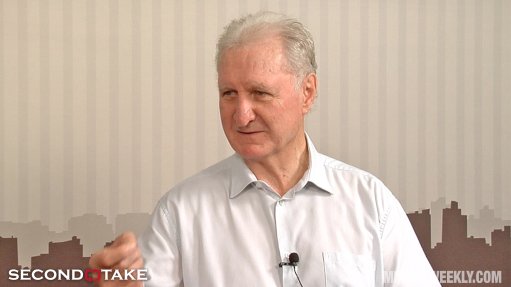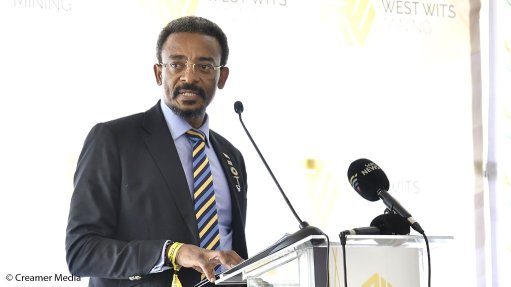Time for action
There is a growing sense that, unless key stakeholders, especially labour, begin to see some practical planning and action around South Africa’s so-called just transition to a low-carbon economy opposition to the transition could rise.
The lack of action to date is frustrating, especially given that the framework for such a transition has been in place since the publication of the National Development Plan (NDP) in 2012.
As highlighted recently by Tasneem Essop, one of the members of South Africa’s National Planning Commission who was instrumental in writing the chapter dealing with environmental sustainability and South Africa’s transition to a low-carbon economy, the principles for the just transition have already been agreed.
This agreement arose following a painstaking two-year consultation process, which involved multiple stakeholder engagements in all nine provinces.
The outcomes are captured in chapter five of the NDP, which states that South Africa should take active steps to move the economy and the country towards far greater environmental sustainability, and do so in a way that ensures that the transition to a low-carbon economy is equitable.
In other words, social justice should be placed at the very heart of the country’s climate mitigation and adaptation strategies. Put differently, the poor and vulnerable should not bear the brunt of the worst impacts of climate change, while workers and communities linked to carbon-intensive activities should be supported or cushioned.
Achieving such objectives is complex for several reasons.
Firstly, it requires that policymakers create the framework for the correct technical choices to be made. These choices need to be aligned to the low-carbon vision, but also alive to commercial realities and shielded from manipulation by vested interests.
Secondly, it is a highly political process. Without broad-based consultation, consensus-building and stakeholder support, it will be all but impossible for government to galvanise society around the vision for a just transition, let alone coordinate, implement and monitor such a project.
Thirdly, such an ambitious, long-term programme can never be static. New, technologies, complexities and priorities are sure to arise. Success will, thus, hinge on having a resilient vision, an adaptable plan and sufficient trust between the social partners to enable them to be flexible.
For this reason, South Africa’s just transition cannot be a government programme, nor the jurisdiction of a single department. As Trade and Industrial Policy Strategies economist Muhammed Patel, who has studied the just-transition concept closely, argues: “You need an entity that is dedicated to the just transition.”
Here, again, South Africa has a ready-baked solution. As part of the 2018 Presidential Jobs Summit resolutions, the social partners agreed to the establishment of a Presidential Climate Change Coordinating Commission (PCCCC) to oversee the just transition.
For some reason, the PCCCC has not yet been formed and no clarity has been provided about its composition or who will lead it.
If South Africa is to advance this process and transform the just transition from being little more than an aspiration or slogan into a programme of action the PCCCC should be set up without delay.
Article Enquiry
Email Article
Save Article
Feedback
To advertise email advertising@creamermedia.co.za or click here
Press Office
Announcements
What's On
Subscribe to improve your user experience...
Option 1 (equivalent of R125 a month):
Receive a weekly copy of Creamer Media's Engineering News & Mining Weekly magazine
(print copy for those in South Africa and e-magazine for those outside of South Africa)
Receive daily email newsletters
Access to full search results
Access archive of magazine back copies
Access to Projects in Progress
Access to ONE Research Report of your choice in PDF format
Option 2 (equivalent of R375 a month):
All benefits from Option 1
PLUS
Access to Creamer Media's Research Channel Africa for ALL Research Reports, in PDF format, on various industrial and mining sectors
including Electricity; Water; Energy Transition; Hydrogen; Roads, Rail and Ports; Coal; Gold; Platinum; Battery Metals; etc.
Already a subscriber?
Forgotten your password?
Receive weekly copy of Creamer Media's Engineering News & Mining Weekly magazine (print copy for those in South Africa and e-magazine for those outside of South Africa)
➕
Recieve daily email newsletters
➕
Access to full search results
➕
Access archive of magazine back copies
➕
Access to Projects in Progress
➕
Access to ONE Research Report of your choice in PDF format
RESEARCH CHANNEL AFRICA
R4500 (equivalent of R375 a month)
SUBSCRIBEAll benefits from Option 1
➕
Access to Creamer Media's Research Channel Africa for ALL Research Reports on various industrial and mining sectors, in PDF format, including on:
Electricity
➕
Water
➕
Energy Transition
➕
Hydrogen
➕
Roads, Rail and Ports
➕
Coal
➕
Gold
➕
Platinum
➕
Battery Metals
➕
etc.
Receive all benefits from Option 1 or Option 2 delivered to numerous people at your company
➕
Multiple User names and Passwords for simultaneous log-ins
➕
Intranet integration access to all in your organisation




















